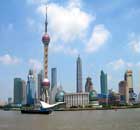Foreign and Military Affairs
China, US can treat each other as partners: Chinese official
(Xinhua)
Updated: 2010-03-25 10:13
 |
Large Medium Small |
WASHINGTON - China and US economic and trade frictions should be handled appropriately to advance the healthy and steady development of the bilateral economic and trade ties, a senior Chinese trade official said on Wednesday.
"For the moment, the biggest challenge facing the China-US economic and trade relationship is trade protectionism and the politicizing of our economic and trade issues," Chinese Vice Commerce Minister Zhong Shan told reporters at Embassy of China in Washington. "We hope that China and the US can treat each other as partners instead of rivals."
Under the pressure of the election year and high unemployment rate, some US senators last week proposed a legislation to press China to appreciate its currency.
The bill requires the US Treasury Department to identify countries with "fundamentally misaligned currencies" and asks the Commerce Department to investigate currency undervaluation as a " countervailable subsidy."
Meanwhile, 130 US congressmen wrote to the government, demanding the Obama administration take actions to appreciate the RMB against the dollar.
"The RMB exchange rate is not the root cause for US trade deficit with China or key to US unemployment," Zhong said.
He said that the economic structures of the two countries are highly complementary. To force an appreciation in the RMB cannot resolve US deficit or unemployment.
Zhong noted that given the large scale, broad scope and rapid development of the China-US bilateral economic and trade cooperation, frictions and problems are inevitable.
"As long as the two sides stick to a strategic and long-term approach to our economic and trade ties and appropriately handle trade frictions through communication and consultation, we can find common grounds and shelf differences and constantly further the bilateral economic and trade relations."











